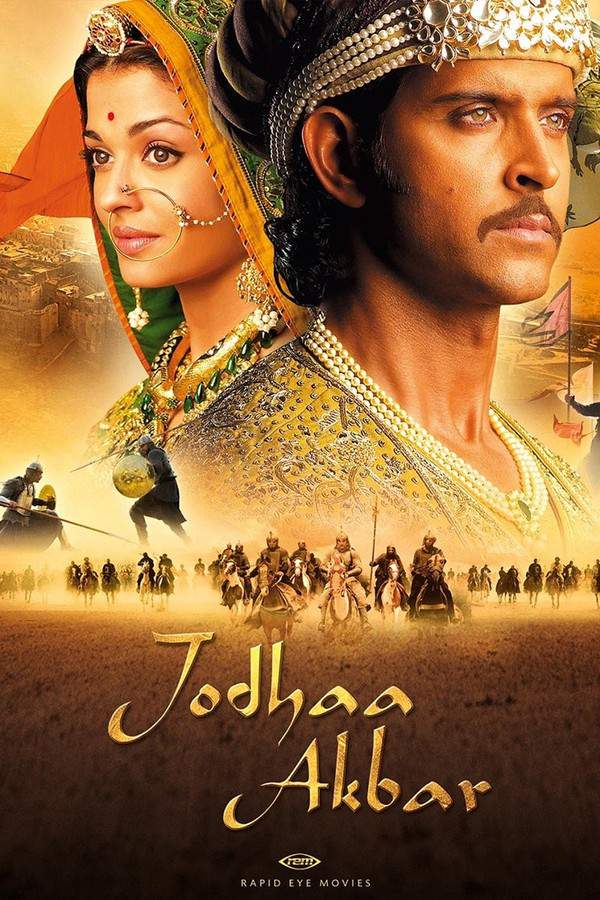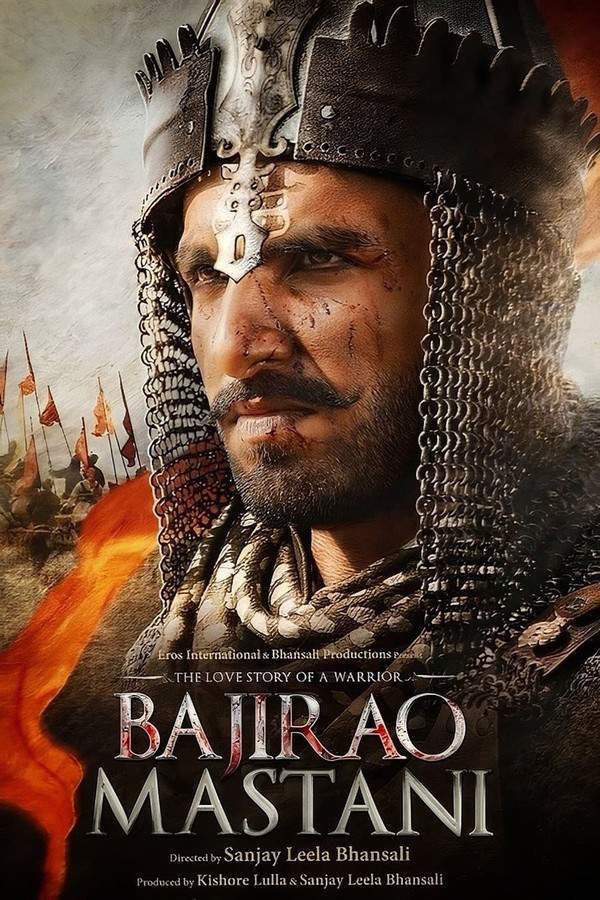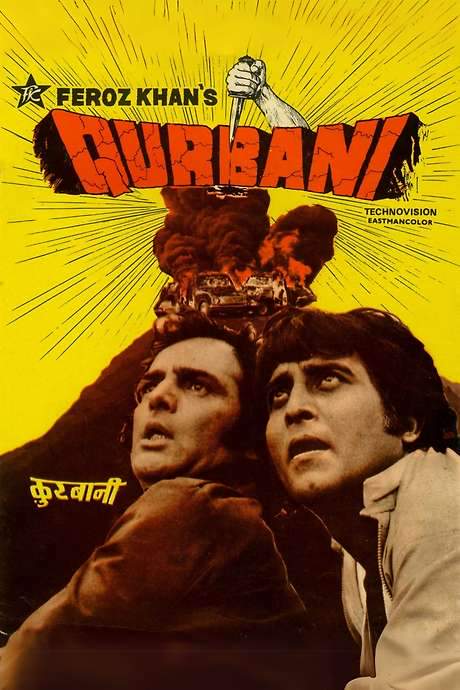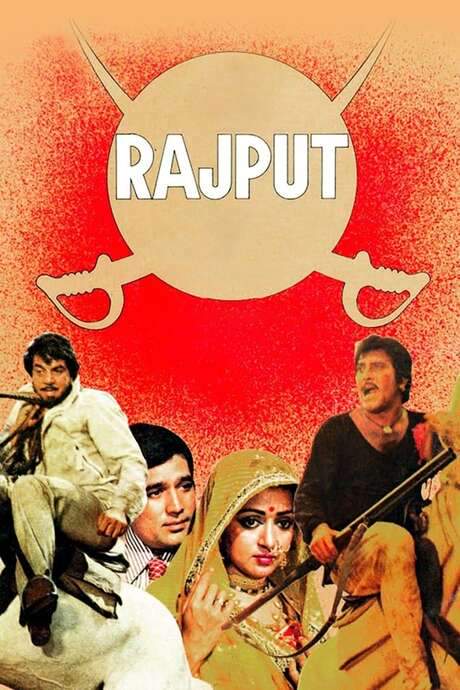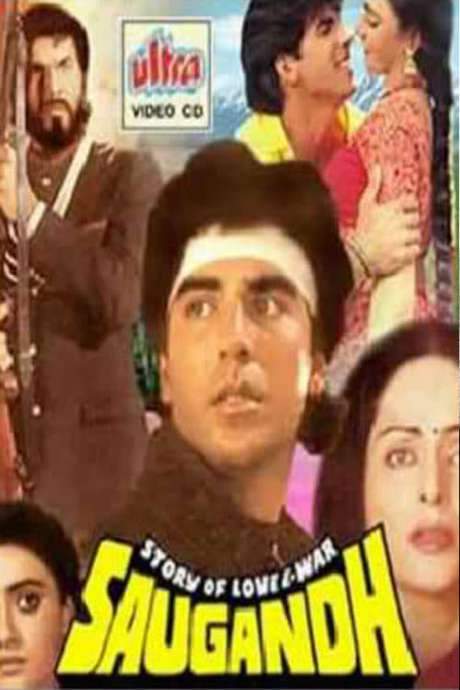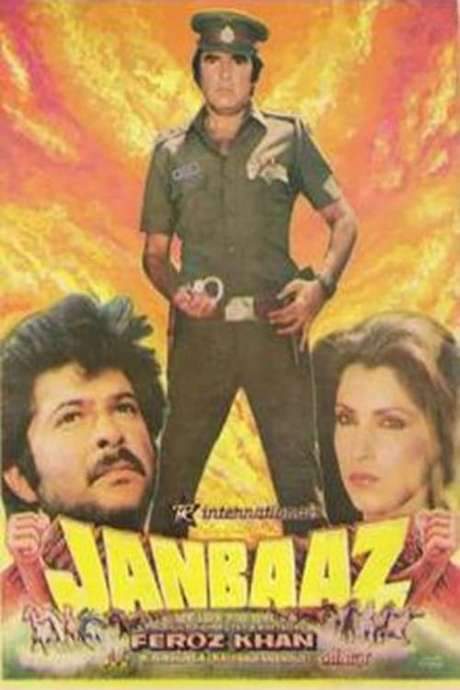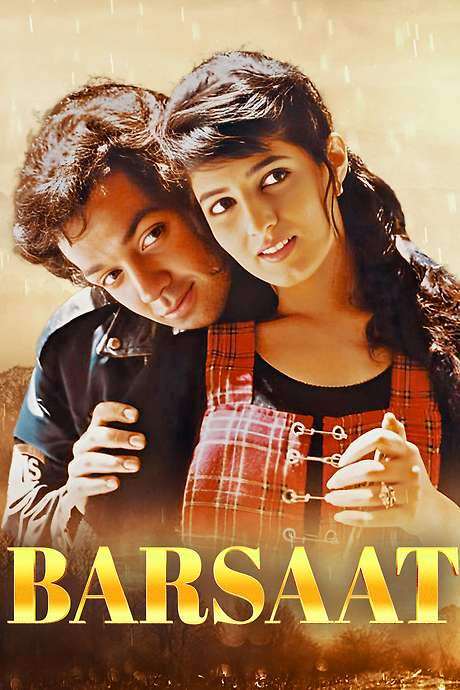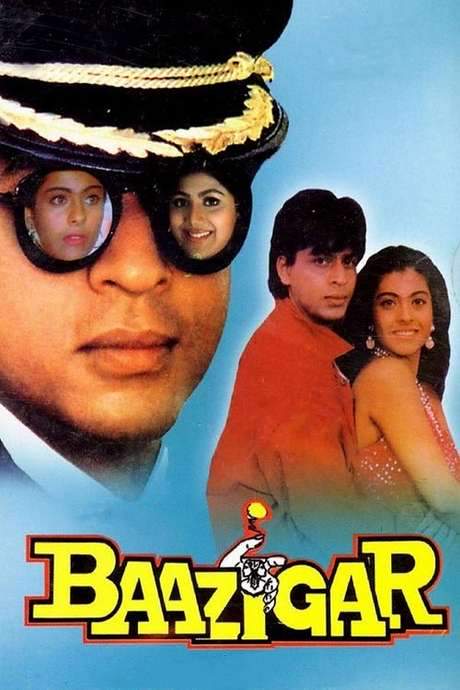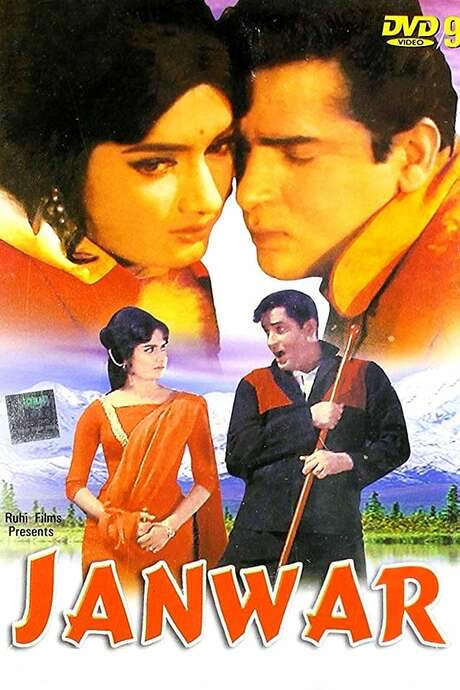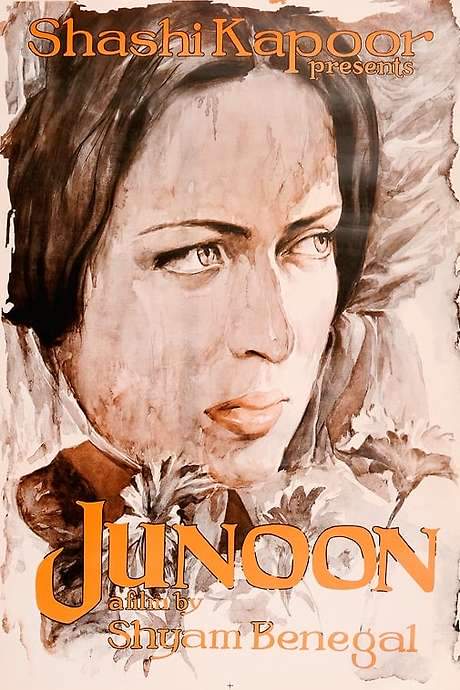
Baiju Bawra
Year: 1952
Runtime: 165 mins
Language: Hindi
Director: Vijay Bhatt
During the reign of Akbar the Great, a young singer sets out to avenge his father’s death and challenges the killer to a musical duel.
Warning: spoilers below!
Haven’t seen Baiju Bawra yet? This summary contains major spoilers. Bookmark the page, watch the movie, and come back for the full breakdown. If you're ready, scroll on and relive the story!
Baiju Bawra (1952) – Full Plot Summary & Ending Explained
Read the complete plot breakdown of Baiju Bawra (1952), including all key story events, major twists, and the ending explained in detail. Discover what really happened—and what it all means.
Tansen Surendra is celebrated as India’s greatest classical vocalist and one of Emperor Akbar’s nine Navaratnas. In his capital, any singer must outshine this maestro, or face the harsh consequences that come with failure. Against this formidable musical backdrop, the young and unknown Baiju Bharat Bhushan enters the stage, a gifted singer who vows to defeat Tansen in a duel to avenge his father’s death. He also falls in love with Gauri Meena Kumari, the daughter of a boatman, a romance that will tug at his loyalties and tempt him away from revenge.
As a child, Baiju witnesses a brutal moment when Tansen’s sentry tries to stop his father from singing, and his father dies. Before dying, the father makes Baiju promise to seek revenge. Baiju finds shelter with a village priest and begins to grow, guided by the memory of his father and the dream of glory. Yet the pull of love for Gauri softens his resolve, a personal longing that coexists with the vow he carries.
Trouble comes on the heels of tenderness when a raid by dacoits unsettles the village. Baiju’s song persuades the raiders to spare the villagers, and the female leader of the dacoits is drawn to him, inviting him to follow her to their fortress. Baiju leaves the village, leaving a devastated Gauri behind. At the fortress, the dacoit princess reveals her own story of exile and a stolen fief, and she seeks revenge; the word “revenge” jolts Baiju’s memories, and his conscience reels as he is drawn into a path that may betray his beloved.
Baiju slips into the Mughal palace where Tansen is performing. He is spellbound by the maestro’s artistry, and a blade meant for Baiju’s throat ends up striking the tanpura instead—a grim reminder that music, not steel, will decide his fate. Tansen himself warns that he can only be slain by a note steeped in sorrow, a line that stings Baiju and steels his resolve to learn real music.
Seeking the depth of true feeling, Baiju seeks out Swami Haridas, who mentors him toward a music born of genuine pain and compassion. Haridas grants a veena and accepts Baiju as a disciple, even as the disciple’s heart wrestles with vengeance. Baiju tunes his voice in a Shiva temple, pouring his heart into his craft while carrying the ache of his father’s death and the weight of his promise. When Haridas falls ill, Baiju’s song so moves the ailing guru that it stirs him to walk again.
Gauri, overwhelmed by Baiju’s absence, teeters on despair and even contemplates poison. Haridas arrives and urges Baiju to let love teach him what hatred never could. Heeding the teacher’s counsel but still feeling the wound of loss, Baiju’s devotion to his art remains tempered by the memory of Gauri. In a desperate bid to wound Baiju deeply, Gauri chooses to harm herself, and the moment shatters Baiju’s already fractured heart. He flees, and in his delirium, he takes refuge in the Shiva temple while the idol itself appears to shed tears for his sorrow.
Baiju makes his way to Tansen’s city once more, singing all the way and earning the fear and awe of the crowd. He is captured and imprisoned, but the exiled princess—now moved by his pain—frees him, and the two flee together only to be caught again by Mughal soldiers. With nothing left to lose, Baiju confronts Tansen in a climactic musical duel that will decide not only who survives but who secures the soul of India’s music.
Emperor Akbar witnesses the confrontation, and for a long time the two singers prove evenly matched. The ruler finally poses a test: whoever can melt a marble slab with his song would win. Baiju rises to the challenge and prevails, saving his life and earning Tansen’s respect. Baiju also persuades Akbar to spare Tansen’s life, restore the princess’s land, and allow music to flourish in the streets. The moment marks a turning point in Baiju’s journey—from vengeance-seeker to a protector of music’s free spirit.
After the triumph, Baiju departs the court, and Akbar’s longing to keep him alive tempts Tansen to conjure a storm with Megh. In a scene that was later cut from the final film, the river Yamuna swells with rain and flood waters as if the heavens themselves were listening to the music. In the aftermath, Gauri remains alive but her father’s anger intensifies, and he pressures her to marry a moneylender unless Baiju is found. The couple’s love is tested by distance and danger, and Baiju undertakes a perilous crossing of the swollen Yamuna to reach her.
Against all odds, Baiju pushes a boat into the raging river, singing as he battles the current. Gauri hears his voice from the shore and races toward the bank. When she sees Baiju struggling with the boat, she jumps into the water to rescue him. The boat capsizes, and after a fierce struggle, they reach one another. Despite Baiju’s plea for her to stay back, Gauri refuses to abandon him; they choose to be together in life and in death. The film closes on their united, fateful swim as the waters close over them, leaving a legend of love and music that outlives the man who sought vengeance and the melody that redeemed him.
Last Updated: October 09, 2025 at 14:11
Explore Movie Threads
Discover curated groups of movies connected by mood, themes, and story style. Browse collections built around emotion, atmosphere, and narrative focus to easily find films that match what you feel like watching right now.
Movies with legendary artistic duels like Baiju Bawra
Stories where a personal vendetta leads to a legendary showdown of skill.If you enjoyed the high-stakes musical confrontation in Baiju Bawra, you'll find similar epic rivalries here. These movies feature artists, musicians, or performers whose personal vendettas culminate in legendary showdowns that test their skill and define their legacy.
Narrative Summary
Stories in this thread follow a clear arc: a profound personal injury (often the death of a mentor or family member) sets a gifted but raw artist on a path of vengeance. They seek out training, often from a demanding mentor, to hone their skills specifically to challenge a celebrated but flawed master. The central conflict is resolved not through physical violence but through a public, high-stakes artistic duel where reputation, honor, and redemption are all on the line.
Why These Movies?
These films are grouped together by their shared core narrative of an artistic duel born from personal tragedy. They combine high emotional intensity with a steady, purposeful pacing that builds anticipation for the final confrontation. The tone is often dramatic and melancholic, exploring the heavy price of obsession and the bittersweet nature of legendary achievement.
Movies with tragic sacrificial romance like Baiju Bawra
Heart-wrenching love stories where devotion leads to tragic sacrifice.For viewers moved by the doomed, sacrificial love story in Baiju Bawra, this collection highlights similar epic romances. These films explore deep, often forbidden love that confronts impossible odds, resulting in heart-wrenching choices and a tragically beautiful conclusion.
Narrative Summary
The narrative pattern revolves around a powerful, fated love that is threatened from the start—by societal norms, family opposition, or a protagonist's single-minded obsession. The love interest often endures great pain and makes significant sacrifices, sometimes even involving self-harm or the ultimate price, to support or save their beloved. The story unfolds with a heavy emotional weight, where romantic bliss is inextricably linked with profound sorrow, culminating in a union that is as tragic as it is transcendent.
Why These Movies?
These movies share a core emotional experience centered on a love that is both deeply romantic and fundamentally tragic. They are characterized by a heavy emotional weight, a melancholic tone, and high scores for both romance and sadness. The pacing is typically steady, allowing the tragic circumstances to unfold with dramatic gravity, leading to a bittersweet or outright sad conclusion.
Unlock the Full Story of Baiju Bawra
Don't stop at just watching — explore Baiju Bawra in full detail. From the complete plot summary and scene-by-scene timeline to character breakdowns, thematic analysis, and a deep dive into the ending — every page helps you truly understand what Baiju Bawra is all about. Plus, discover what's next after the movie.
Baiju Bawra Timeline
Track the full timeline of Baiju Bawra with every major event arranged chronologically. Perfect for decoding non-linear storytelling, flashbacks, or parallel narratives with a clear scene-by-scene breakdown.

Characters, Settings & Themes in Baiju Bawra
Discover the characters, locations, and core themes that shape Baiju Bawra. Get insights into symbolic elements, setting significance, and deeper narrative meaning — ideal for thematic analysis and movie breakdowns.

Baiju Bawra Spoiler-Free Summary
Get a quick, spoiler-free overview of Baiju Bawra that covers the main plot points and key details without revealing any major twists or spoilers. Perfect for those who want to know what to expect before diving in.

More About Baiju Bawra
Visit What's After the Movie to explore more about Baiju Bawra: box office results, cast and crew info, production details, post-credit scenes, and external links — all in one place for movie fans and researchers.

Similar Movies to Baiju Bawra
Discover movies like Baiju Bawra that share similar genres, themes, and storytelling elements. Whether you’re drawn to the atmosphere, character arcs, or plot structure, these curated recommendations will help you explore more films you’ll love.
Explore More About Movie Baiju Bawra
Baiju Bawra (1952) Scene-by-Scene Movie Timeline
Baiju Bawra (1952) Movie Characters, Themes & Settings
Baiju Bawra (1952) Spoiler-Free Summary & Key Flow
Movies Like Baiju Bawra – Similar Titles You’ll Enjoy
Jodhaa Akbar (2008) Movie Recap & Themes
Bajirao Mastani (2015) Full Summary & Key Details
Bollywood Queen (2002) Full Movie Breakdown
Bewafaa (2005) Movie Recap & Themes
Qurbani (1980) Spoiler-Packed Plot Recap
Rajput (1982) Movie Recap & Themes
Saugandh (1991) Full Movie Breakdown
Janbaaz (1986) Spoiler-Packed Plot Recap
Barsaat (1995) Complete Plot Breakdown
Baazigar (1993) Full Movie Breakdown
Janwar (1965) Ending Explained & Film Insights
Lal Baadshah (1999) Story Summary & Characters
Bajre Da Sitta (2022) Story Summary & Characters
Junoon (1978) Full Movie Breakdown
Awaara (1951) Complete Plot Breakdown






























